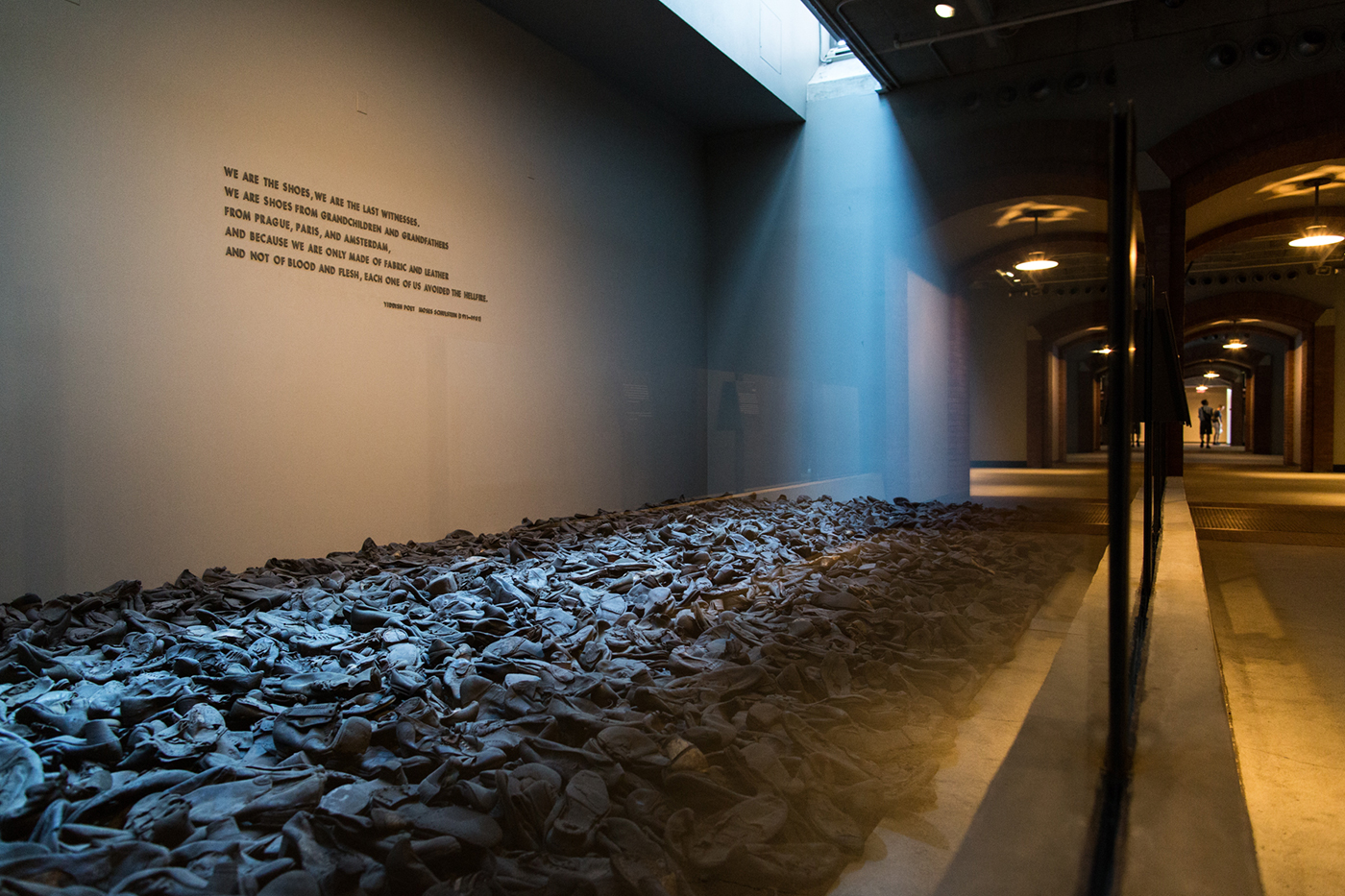Via RNS — Yesterday (June 24), the U.S. Holocaust Memorial Museum condemned the comparison of concentration camps to illegal immigrant detention centers.
Here is the statement:
The United States Holocaust Memorial Museum unequivocally rejects efforts to create analogies between the Holocaust and other events, whether historical or contemporary. That position has repeatedly and unambiguously been made clear in the Museum’s official statement on the matter – a statement that is reiterated and reaffirmed now.
The Museum further reiterates that a statement ascribed to a Museum staff historian regarding recent attempts to analogize the situation on the United States southern border to concentration camps in Europe during the 1930s and 1940s does not reflect the position of the Museum.
The Museum deeply regrets any offense to Holocaust survivors and others that may have been engendered by any statement ascribed to a Museum historian in a personal capacity.
I do not know what the museum staff member said, but I imagine that this recent press release finds its inspiration in recent comments by Rep. Alexandra Ocasio-Cortez.
I do not expect that the Museum would take a position on this issue, or any other issue.
And yet, I find that statement from the Museum to be confusing.
Consider: it is impossible to walk through that museum, and be deaf to the explicit and implicit messages that emanate.
Never again.
Not for the Jews.
And, not for anyone.
What happened in the Holocaust might have started with the Jews (actually, with the handicapped).
But, its implications go far beyond the borders of the Jewish people and historical experience.
Visit the Museum gift shop.
The gift shop not only stocks books about the Holocaust.
It also carries books on other genocides, and books on the very nature of evil itself.
So, the Museum itself knows that learning about and from the Holocaust is far bigger than simply the Jews.
Consider these questions.
First, where is the Museum located?
The Museum is not in New York, which has its own share of Jewish museums.
The Museum is not a Jewish museum at all.
It is located in Washington, DC — on federally owned land.
Even its precise location in DC has its own message.
I remember something that the Museum’s first director, Michael Berenbaum, noted when it first opened.
The Museum is at the intersection of “Museum DC” and “Government DC.”
This Museum is the antithesis of its neighbors.
The Shoah is about the demonic potential of government and technology (i.e., its neighbors, the Air and Space Museum and the Smithsonian) — and how a highly cultured people could produce great evil.
These are universal lessons.
Second, who visits the Museum?
Hint: most of the visitors are not Jews.
No — those crowds are comprised of people from all regions of the country. They are from every social-economic class, every level of education, every ethnicity — not to mention visitors from foreign countries.
The Museum therefore serves a moral purpose. It is a shield against denial.
Third, what should this Museum mean to Americans?
This past weekend, I visited the new exhibit on “America And The Holocaust.”
It is devastating.
It blows out of the water the convenient fantasy that Americans did not know what was going on.
In perhaps the exhibit’s most interesting offering, you can see an interactive map of the United States that shows all the local newspapers from that era — each one, with headlines about what was happening in Europe.
We knew.
What prevented us from acting?
Our xenophobia, economic conditions, cynicism, and pure apathy.
Do not imagine that the broader implications of those lessons remained unvoiced.
Especially if you leave the Museum, and wander a short distance to the Smithsonian National Museum of African American History and Culture.
I agree that we have been far too eager to use Holocaust language and imagery to describe other situations.
Sometimes, that overt willingness blurs historical realities.
Moreover, it blurs the nuances that must be part of any rational and accurate conversation.
Perhaps it is time for us to declare a partial moratorium on facile analogies, which tend towards extremism.
- Every right wing politician is not a Nazi (very, very, very few of them, in fact).
- Every left wing politician is not a Communist (ditto).
- Every horror is not the Holocaust, or a holocaust.
But, I have some sad and sobering news for those at the US Holocaust Memorial and Museum.
“The Museum deeply regrets any offense to Holocaust survivors and others…”
There will come a time, and it is coming, when there will be no more survivors.
At such a time as that, those who are left — our children and grandchildren — will ask: Why do we need to know this?
The Museum already contains that answer.

